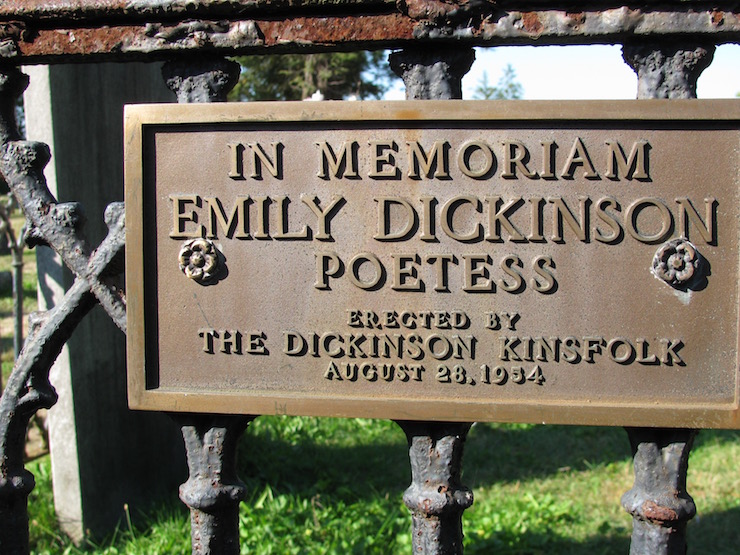< Return to Emily Dickinson Poems
V. Going to Him
THE LETTER.
“Going to him! Happy letter! Tell him —
Tell him the page I didn’t write;
Tell him I only said the syntax,
And left the verb and the pronoun out.
Tell him just how the fingers hurried,
Then how they waded, slow, slow, slow;
And then you wished you had eyes in your pages,
So you could see what moved them so.
“Tell him it wasn’t a practised writer,
You guessed, from the way the sentence toiled;
You could hear the bodice tug, behind you,
As if it held but the might of a child;
You almost pitied it, you, it worked so.
Tell him — No, you may quibble there,
For it would split his heart to know it,
And then you and I were silenter.
“Tell him night finished before we finished,
And the old clock kept neighing ‘day!’
And you got sleepy and begged to be ended —
What could it hinder so, to say?
Tell him just how she sealed you, cautious,
But if he ask where you are hid
Until to-morrow, — happy letter!
Gesture, coquette, and shake your head!”
-Emily Dickinson
Enjoy Artistic Representations of “Going to Him” by Emily Dickinson
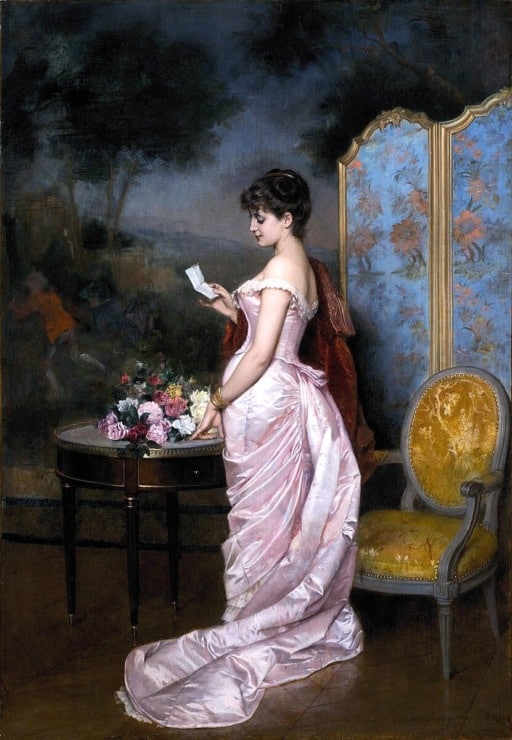
The Love Letter by Auguste Toulmouche, 1883.
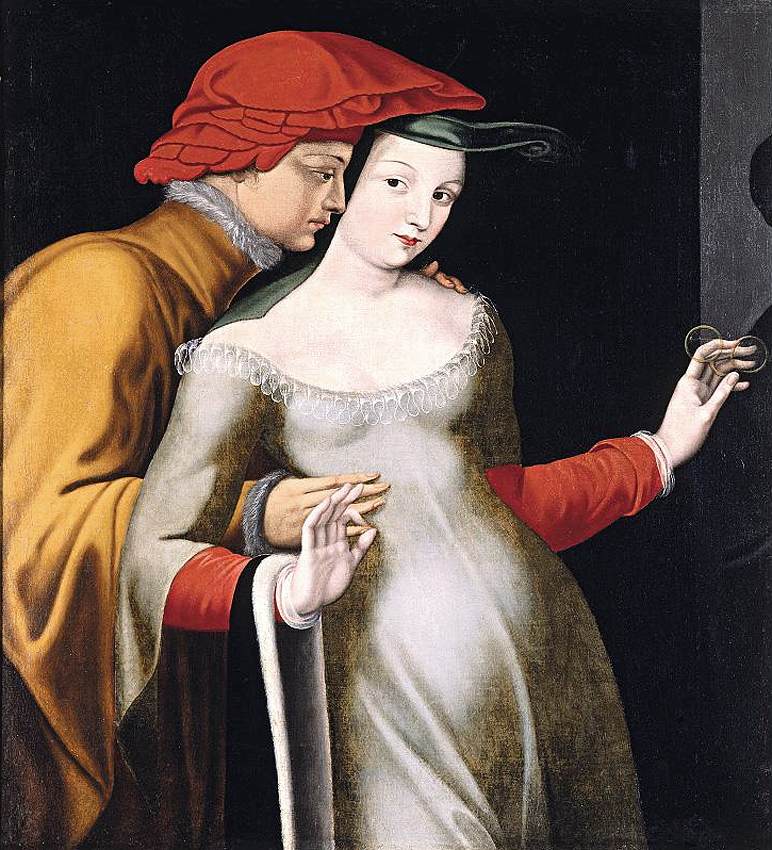
The Lovers by student of the School of Fontainebleau, 16th century.
Listen to these Readings of “Going to Him”
Listen to this Musical Interpretation of “Going to Him” by Emily Dickinson
About Emily Dickinson
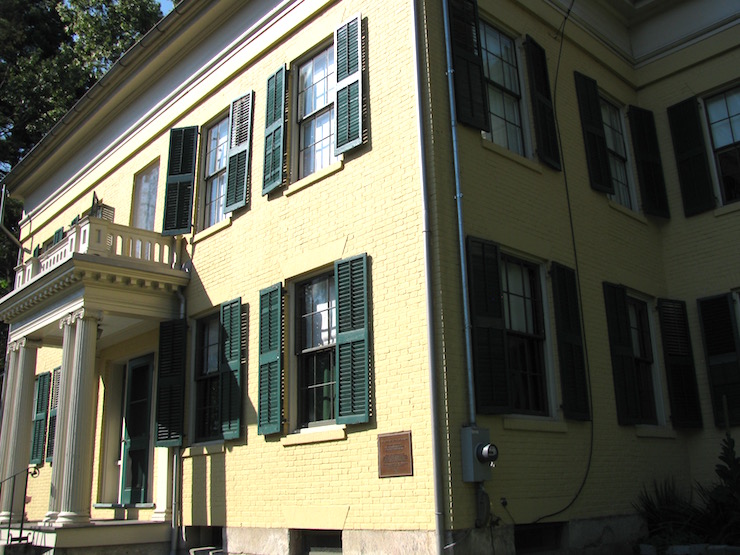
Emily Dickinson estate in Amherst Massachusetts
Emily Dickinson was born in Amherst, MA, in 1830, the daughter of state and federal politician Edward Dickinson. A prolific poet, Dickinson was known to draft poems on the backs of envelopes and chocolate wrappers. Nearly 1800 of her poems were discovered by her family following her death, many in 40 handbound volumes she had sewn together, written in her own hand with her famously unorthodox punctuation.
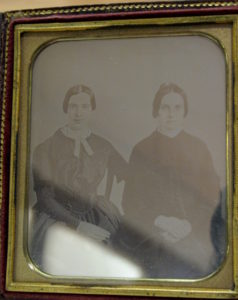
Emily Dickinson & Susan Gilbert
The enigmatic poet is remembered as a recluse, rarely leaving the Dickinson estate. While she did receive callers at her home, conversations were often held from opposite sides of a closed door.
She lived with her sister, Lavinia, while her brother Austin and his wife, Susan Gilbert, lived down a narrow path on the property. Her writing reflects profound loneliness as well as a deep capacity for love and affection, much of which is believed to have been shared with Gilbert.
Her first collection of poems, Poems by Emily Dickinson, was published four years after her death, with Poems: Second Series and Poems: Third Series following in the next several years.
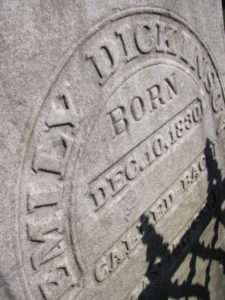
“Called Back”
Like Walt Whitman (who she reportedly never read), she is considered one of the most influential poets in the emergence of a distinctly American poetic voice.
She was born on December 10, 1830, and today visitors to Emily Dickinson’s grave can witness a lasting image of her perspective on life. The etching on her stone marking the date of her death—May 15, 1886—bears the words “Called Back.”
< Return to Emily Dickinson Poems
Get Every Day Poems, free…
